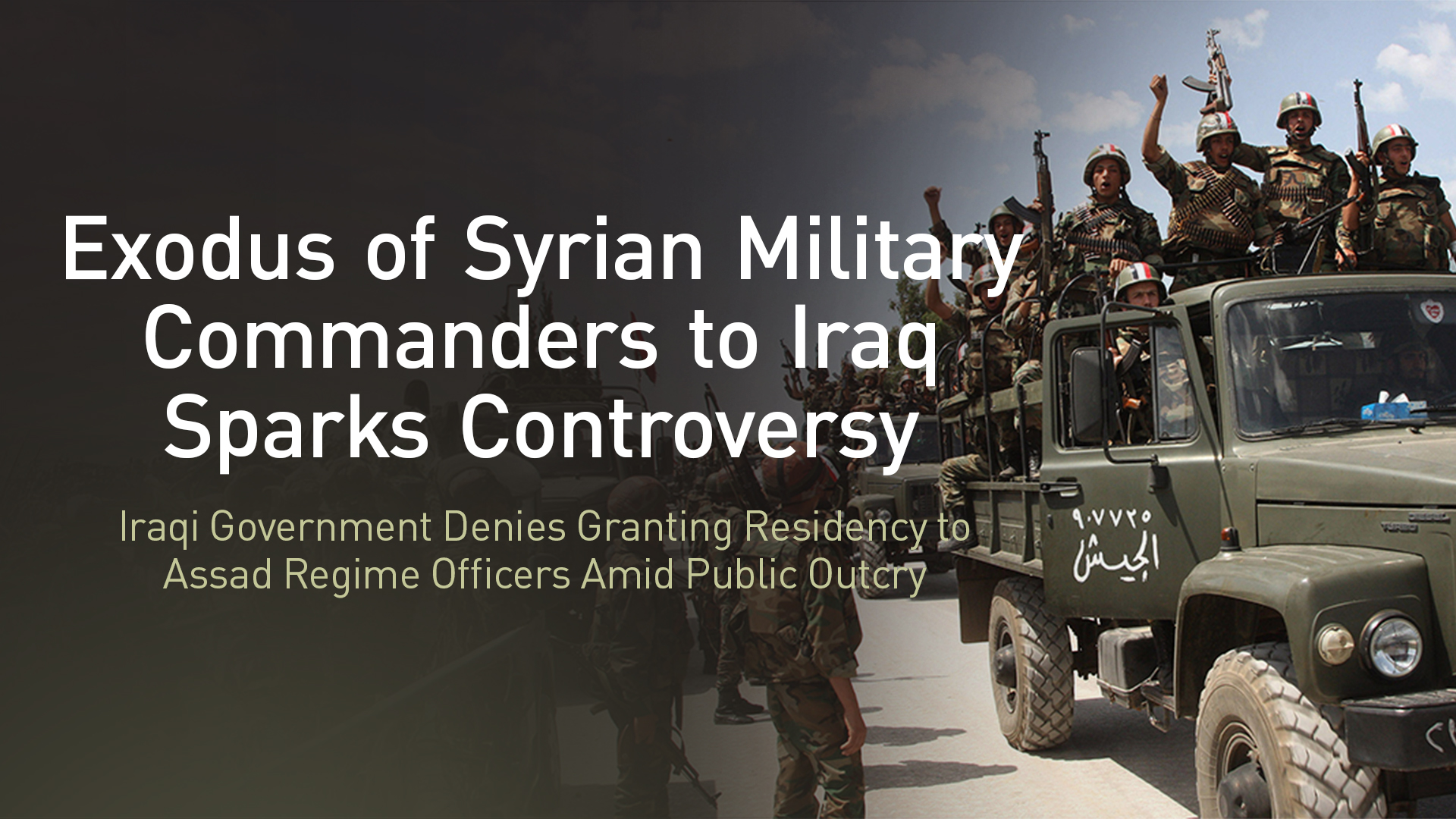Exodus of Syrian Military Commanders to Iraq Sparks Controversy
Iraqi Government Denies Granting Residency to Assad Regime Officers Amid Public Outcry

ERBIL (Kurdistan 24) – Reports circulating in Iraqi media and on social networking platforms suggest that Baghdad has granted residency to dozens of high-ranking Syrian army officers and thousands of soldiers who fled to Iraq in the final hours before the collapse of Bashar al-Assad’s regime.
The alleged decision has triggered widespread condemnation from Iraqi political circles and the public, with critics viewing it as an endorsement of figures linked to a brutal dictatorship.
The Iraqi Federal Ministry of Interior, however, issued a firm denial on Tuesday, dismissing the claims as “malicious rumors.” Speaking to the press, Brigadier General Miqdad Miri, spokesman for the ministry, acknowledged that Syrian military personnel had crossed into Iraq on December 7 and 8, 2024, but stressed that they had been disarmed before entry.
“We completely deny these allegations in their entirety,” Miri stated. “The Iraqi government has not granted residency to any officers or commanders of the former Syrian army. We urge the public to rely on official sources for accurate information.”
A Chaotic Retreat: The Syrian Military’s Flight to Iraq
According to verified reports, more than 2,000 Syrian soldiers, including members of the elite Republican Guard, sought refuge in Iraq after fierce battles between opposition factions and regime forces reached the capital, Damascus. The soldiers and officers, fearing for their lives under the newly formed Syrian transitional government, surrendered to Iraqi authorities at the al-Qaim border crossing, also known as al-Bukamal, a key entry point between the two countries.
The wave of defections followed a decisive military offensive by Hay’at Tahrir al-Sham (HTS) and allied opposition factions, which launched a full-scale attack on November 27, 2024, from Idlib Governorate, rapidly capturing large swathes of territory, including the Syrian capital. In the wake of the assault, Bashar al-Assad and his family fled the country, leaving behind a fractured and leaderless regime.
Baghdad’s Delicate Balancing Act
The influx of former Syrian military personnel into Iraq presents a complex challenge for Baghdad. While Iraq has historically maintained diplomatic ties with the Assad government, the abrupt collapse of the Syrian regime and the presence of high-ranking defectors on Iraqi soil raise concerns about potential diplomatic repercussions and regional security risks.
At the time of their entry, Iraqi government spokesman Bassim al-Awadi confirmed the arrival of the Syrian soldiers but refrained from elaborating on their future status. Reports indicate that dozens of senior officers—holding ranks such as brigadier general and major general—have refused to return to Syria, fearing execution at the hands of the opposition-led government.
The controversy has ignited fierce debates within Iraq, with figures calling for transparency regarding the fate of the Syrian officers. Many Iraqis argue that welcoming individuals associated with the Assad regime—widely condemned for human rights violations—undermines Iraq’s credibility and its efforts to rebuild trust with regional and international partners.
What Comes Next?
As the dust settles on the Syrian conflict, the fate of these defected officers remains uncertain. While the Iraqi government has denied granting them residency, it remains unclear whether they will be deported, granted asylum, or held in temporary camps.
With Iraq navigating an already delicate political landscape, its handling of this issue will be closely watched—both by domestic audiences and by international powers assessing Baghdad’s stance in the post-Assad era.